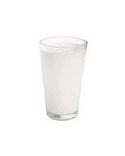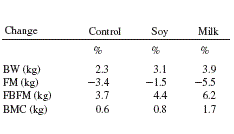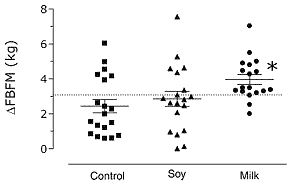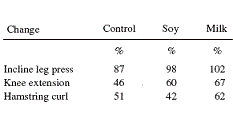Originally posted by erik1982
View Post
Oke ERik bedankt voor je duidelijke antwoorden. maar nu rest mij nog 1 vraag.
ikheb eens gegoogled op glymisce index en daar zag ik dat dextrose 100 scoorde... Melk daarintegen scoorde maar 30 en lijkt mij dus ookniet zon goeie optie voor na trainen? en in melk zit wel de Glucose?


 Canadese McMaster University in een experiment waarin ze vloeibare koolhydraten, een soja-drank en magere melk als post workout-drank met elkaar vergeleken
Canadese McMaster University in een experiment waarin ze vloeibare koolhydraten, een soja-drank en magere melk als post workout-drank met elkaar vergeleken



Comment